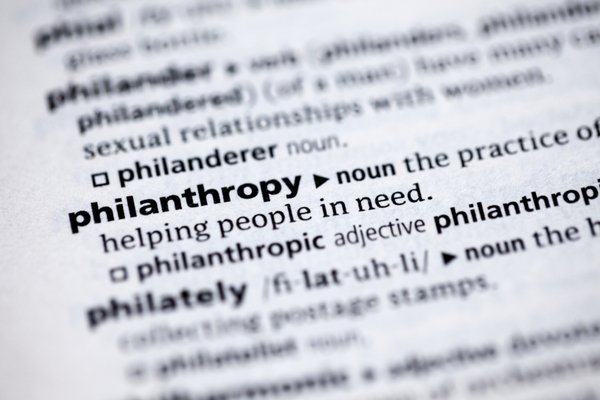Hafeez Ahmed Khan
Philanthropy is the activity of helping people experiencing poverty, especially by giving them money or giving away money to organizations that help people. Philanthropy can also include volunteering time, effort, or other forms of altruism. Philanthropy is motivated by an altruistic desire to improve human welfare and quality of life.
There are different types of philanthropy, such as:
Individual philanthropy: This is when people donate their own money, time, or resources to charitable causes or organizations, independent of their professional affiliations or obligations. For example, a person may donate money to a hospital, volunteer at a school, or offer their skills to a nonprofit organization.
Corporate philanthropy: This is when businesses or corporations support social or environmental causes or organizations, either through financial donations, in-kind contributions, or employee engagement. For example, a company may sponsor a scholarship program, donate products or services to a community, or encourage its employees to volunteer for a cause.
Foundation philanthropy: This is when wealthy individuals or families establish private foundations to facilitate their philanthropic efforts, usually by creating endowments or trusts that generate income for charitable purposes. For example, a foundation may fund research, education, health, or arts projects or organizations.
Pakistan is a generous country when it comes to philanthropy. It contributes more than one per cent of its GDP to charity, which is comparable to far wealthier countries like the United Kingdom and Canada. A study conducted by the Pakistan Centre for Philanthropy shows that Pakistanis give around PKR 240 billion (more than $2 billion) annually to charity. The same report indicates that about 98 per cent of people in the country give in one form or another—if not with cash, then with in-kind donations or by volunteering for needy causes.
However, most of the donations in Pakistan go directly to individuals, thus bypassing charitable organizations. While supporting needy individuals plays an integral role in Pakistan’s social safety net, to realize the full impact of philanthropy for more sustained development efforts, there is a need to institutionalize the individual tendency of giving and redirect it toward more structured efforts.
There are some examples of Pakistani individuals, organizations, and others who have contributed to the field of philanthropy, such as:
Abdul Sattar Edhi: He was a renowned humanitarian and social activist who founded the Edhi Foundation, which runs the world’s largest volunteer ambulance network, along with orphanages, homeless shelters, clinics, and other welfare services. He was known as the “Angel of Mercy” and was nominated several times for the Nobel Peace Prize. He donated his eyes and organs after his death in 2016.
Malala Yousafzai: She is a Nobel laureate and an advocate for girls’ education and women’s rights. She survived a Taliban assassination attempt in 2012 and became a global icon of courage and resilience. She founded the Malala Fund, which supports education programs and activists in Pakistan and other countries. She is also a UN Messenger of Peace and a co-recipient of the Sakharov Prize.
The Citizens Foundation (TCF): It is a nonprofit organization that provides quality education to underprivileged children in Pakistan. It operates more than 1,600 schools across the country, serving over 266,000 students, with a 50 per cent female enrollment rate. It also runs adult literacy and vocational training programs and engages with communities to promote social change. It has received several awards and recognition for its work, such as the Skoll Award and the Ramon Magsaysay Award.
Furthermore, it is essential to develop a culture of philanthropy in Pakistan. Social connections and support are the foundation of the social protection system, and developing a culture of philanthropy can substantiate social connection and diversity. To enhance the culture of philanthropy in Pakistan, there are some possible steps that can be taken, such as:
- Improving the transparency and accountability of charitable organizations, such as by establishing standards, regulations, and mechanisms for reporting, auditing, and monitoring their activities and impacts. This can help build trust and confidence among donors and beneficiaries and encourage more giving to organizations.
- Promoting the awareness and recognition of the role and value of charitable organizations, such as by highlighting their achievements, innovations, and contributions to the social and economic development of the country. This can help increase the visibility and legitimacy of organizations and attract more support and collaboration from donors, government, and other stakeholders.
- Developing the capacity and sustainability of charitable organizations, such as by providing them with training, mentoring, networking, and funding opportunities. This can help improve their efficiency, effectiveness, and impact and enable them to address the diverse and complex needs and challenges of society.
- Fostering a culture of strategic and long-term giving, such as by educating and inspiring donors about the importance and benefits of supporting sustainable development goals and initiatives rather than just providing immediate relief or assistance. This can help shift the mindset and behaviour of donors from charity to philanthropy and from individual to collective action.
- Leveraging the potential of technology and innovation, such as by using digital platforms, tools, and methods to facilitate and enhance giving and receiving. This can help expand the reach and access of charitable organizations and create new and diverse ways of engaging and empowering donors and beneficiaries.
These are some of the ways that Pakistan can enhance the culture of philanthropy in the country and harness the power and potential of giving for the greater good of society. Lastly, the social as well as cultural institutions in Pakistan should create more awareness about the significance of philanthropy.

















